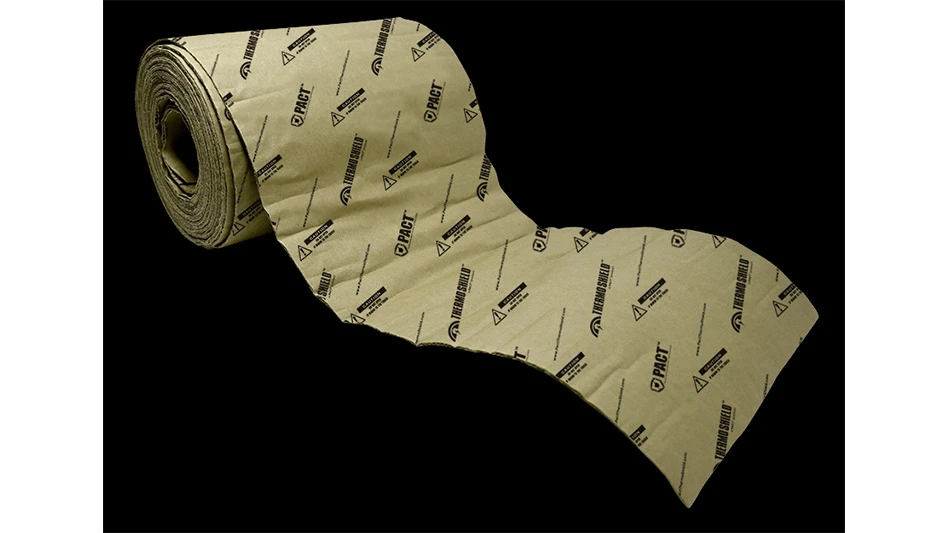
Photo courtesy of PACT LLC
Connecticut-based PACT LLC says its new product PACT Thermo Shield has been designed to control lithium battery thermal runaway, which causes “dangerous and oftentimes deadly fires.” The new wrapping product has passed proposed SAE International testing standards for safety in shipping lithium-ion batteries via land, sea and air, the company says.
“Lithium-ion batteries [can] become hazardous if they’ve been damaged or have some kind of defect, ultimately causing devastating, explosive fires,” PACT President Rodger Mort says. “Our proprietary Thermo Shield product line is a protective and affordable solution that is quickly becoming an industry must when travelling, shipping, storing or disposing of products containing lithium-ion batteries.”
In the event of a fire, Mort says Thermo Shield is capable of containing temperatures up to nearly 1,500 degrees Fahrenheit while restricting the temperature outside of the wrap to 140 degrees Fahrenheit. “Lithium-ion battery fires are very difficult to extinguish and usually have to smolder out on their own after many hours, emitting lethal fumes and gases,” he says. “This makes our product’s ability to contain both the fire and residual smoke within the protective wrap even more crucial.”
Mort says Thermo Shield also provides a method to ship or transport end-of-life products or batteries safely to a battery recycler. The company says its recently unveiled TR Envelope product is designed to safely transport and store recyclable smaller devices such as cell phones, pagers, smartwatches and [other] batteries.
In the waste and recycling sector, batteries have been cited as the cause of fires at locations ranging from material recovery facilities (MRFs) to barges carrying scrap metal.
“Consumers need to do their part to prevent lithium-ion battery fires by properly recycling their unused electronics and mobility devices,” Mort says. “They cannot be tossed in the trash or a regular recycling bin, but must be separated from combustible materials like cardboard, paper and wood scraps.”
He says he encourages individual household consumers and businesses, property managers and anyone interested in recycling large quantities of batteries to acquire secure battery recycling containers and recycling information from PACT.
Latest from Waste Today
- US Senate backs reduced cuts to EPA
- Waste Connections announces Q2 results
- Returnity and Cosmoprof to address reusable bag waste
- SWANA releases report on aging WTE facilities
- New economic assessment reveals cost benefits of California’s SB 54
- Premier Truck Sales & Rental opens new facility
- TeknTrash Robotics, Sharp Group partner on humanoid robot pilot
- Stadler equips mixed waste sorting plant in Sweden





